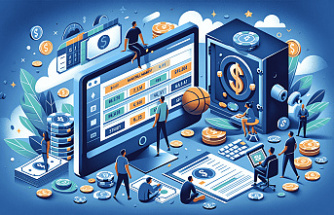One of the great changes that the pandemic has left has been the growing use of bank cards. And although some use it still seems like a risk operation, experts from the financial product comparator HelpmyCash.com confirm that there are methods to reduce the chances of being victims of fraud. Regardless of whether it seizizes a debit, credit or prepaid card, it is important to know the configuration of banking apps. Through digital channels it will be easier to limit operations, turn off the cards or configure notifications. These and other preventive measures could help significantly decrease the chances of falling into a scam.
Although it is one of the most shared configurations by banking apps, many users ignore that they have the possibility to activate or deactivate their card with a single click. It can be done temporarily, for example if you have a card that is used little or is not usually at hand and you want to have the certainty that no one else can use it. And is that when deactivating it, the card will be temporarily disabled and it will not be possible to take money or buy with it. To use the card again, it will be enough to activate it before. In case of suspicion of fraudulent use of the card, from HelpMyCash recommend to deactivate it until you are sure that there is no risk.
Knowing if the card has been used by third parties is easier than it is usually believed. Most banking entities allow you to configure notices (SMS or push notifications) each time the card is used. Thus, from the electronic banking or the app it will be possible to request an alert to be informed whenever operations are carried out in a cashier or purchases with the card. In case a foreign movement is notified whose origin is not possible to identify, it will be best to deactivate the card.
Depending on the habits of use, it could be useful to limit the operation of the card. If, for example, it is used to pay in shops, but they are not reimbuled with it, it is possible to deactivate this last functionality from the APP. With this simple gesture you can have the certainty that no one can take money out with her. And if little is used, you can also limit the maximum amount that can be removed every day.
Some entities also allow you to limit the maximum amount that can be spent every day or every month in purchases. Thus, in case of having a little card that is used, it will be possible to limit the expenses to be safer. Similarly, there is the possibility of blocking contactless payments or limiting them or even blocking payments abroad. Certain entities such as OpenBank, ABANCA or BBVA have the option to deactivate the payment contactless, an interesting option for those who opt for greater security.
In any case, each bank establishes its own options to configure the safety of your cards and not all entities give the same possibilities. For example, account holders without N26 commissions can turn off their cards temporarily and block reintegros in cashies, online payments and purchases abroad from the app, as well as limit the maximum daily amount that can be spent or removing of a cashier.
Although more and more entities take into account the safety of the cards, there are some banks that protrude in this aspect by having introduced improvements in their plastics as, for example, dynamic verification codes.
The latter is the case of BBVA, which markets the Aqua debit card without printed numbers and with a dynamic CVV. With this means of payment, Internet transactions are safer, since, as the CVV changes regularly, in the event that a third one steals the data, then you can not use them again. To consult the data of the card, it is necessary to access the APP. The new BBVA customers can get an Aqua debit card without annual fees when opening the online account without commissions and without linking.
Prepaid cards also offer an extra security by paying online, since by not being linked to an account, in case of fraud they could only steal the money that would have been previously loaded.
At the time of paying, it is important to always have the card. From HelpmyCash they recommend not to deliver the card to third parties and that they are responsible for approaching or entering the card in the datáphone by paying, as well as any attempt to cloning can be avoided. It is also important to make sure that when typing the PIN number in the TPV or in a cashier nobody is observing.
As for online shops, before entering the data of the card it is worth confirming that a legitimate web page has been accessed. Although it is not an easy task, there are certain indicators that can be useful. If the web that is accessed does not have any section with legal information, it does not use an HTTPS address or has spelling or layout errors, it may be a fraudulent website.
Date Of Update: 25 July 2021, 06:46











